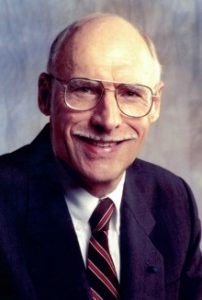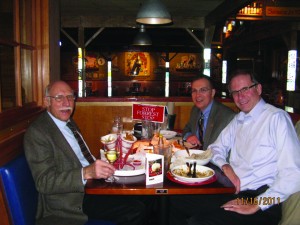 The engineering community lost a great teacher and researcher when Arthur E. Bergles (78) passed away March 17, 2014, of a malignant brain tumor.
The engineering community lost a great teacher and researcher when Arthur E. Bergles (78) passed away March 17, 2014, of a malignant brain tumor.
Bergles had a presence that made an impact across the country and was known for a career that advanced heat transfer methods and encouraged others to explore and push the boundaries in the field.
In Process, Enhanced, and Multiphase Heat Transfer: A Festschrift for A.E. Bergles, he was recognized for being able to “extract and deduce from experimental data the physics governing a process,” providing a foundation for other researchers to further investigate. The writing also noted that Bergles continually built relationships that help put research into practice: “He has strived to discover why something occurred, but at the same time he has endeavored to show how the results ultimately might be applied in industry.”
At Iowa State University, Bergles was known as a long-time friend, where he made a lasting impression on those who knew him.
He was chair and professor of mechanical engineering at Iowa State from 1972-83 and continued as professor-in-charge of the Heat Transfer Laboratory until 1986. He then became the Clark and Crossan Professor of Engineering and Director of the Heat Transfer Laboratory at Rensselaer, eventually becoming engineering dean for the school. During his retirement, he remained active in academia and research.
Throughout his career, Bergles earned many honors, including being named Iowa State’s Anson Marston Distinguished Professor in 1981. He also left a legacy to the university, establishing the Bergles Professorship through an endowment with his wife, Penny, to attract or retain an outstanding senior faculty member in the thermal sciences.

Ted Heindel is currently the Bergles Professor of Thermal Science in the Department of Mechanical Engineering. Heindel says Bergles was still researching and adding perceptive notes to the field up until his death, showing just how much passion he had for his work. Even still, it was his dedication to educating young engineers that Heindel says was most memorable.
“If there was a student giving a paper at a conference, Art would ask a very insightful question. Not to put the student on edge, but to help develop that student. Similarly, if a student was backed into a corner or flustered, Art would step up and act as a mediator, helping the student answer the question,” Heindel reflects.
Robert C. Brown, who was the inaugural holder of the Bergles professorship, started in the mechanical engineering department at Iowa State just as Bergles stepped down as chair. He describes Bergles as a gentleman from the old school, being formal in his interactions with colleagues but also extremely collegial and caring about the careers of young faculty.
“One day during my first semester, he showed up at my office with two small books tucked under his arm. He said no more than, ‘You might find these books helpful,’ and he left,” Brown recalls. “I felt like a teenage son getting ‘the talk’ from his father – they were ‘how to’ books on teaching.”
Brown adds that Bergles was responsible for increasing the role of research in the department by balancing the goodwill of senior faculty who established a strong reputation for the department’s undergraduate program while encouraging younger faculty to build research programs. “Because he was both an excellent educator and a highly regarded researcher, he was able to understand these competing demands of an academic career.”
Gerald M. Colver, professor emeritus of mechanical engineering, remembers how Bergles always went the extra mile for others, even helping him unload his furniture after Colver moved cross-country to start as a faculty member at Iowa State.
“As department chair, he left his door open for anyone to just walk in. When you entered his office, he typically would pull up a chair beside you offering his full attention,” Colver says. “He held firm opinions but was also a polite listener, and he had a way of conveying an intelligent (rather than intellectual) presence and did it without trying.
“He was a good friend and remembered colleague. He will be missed.”